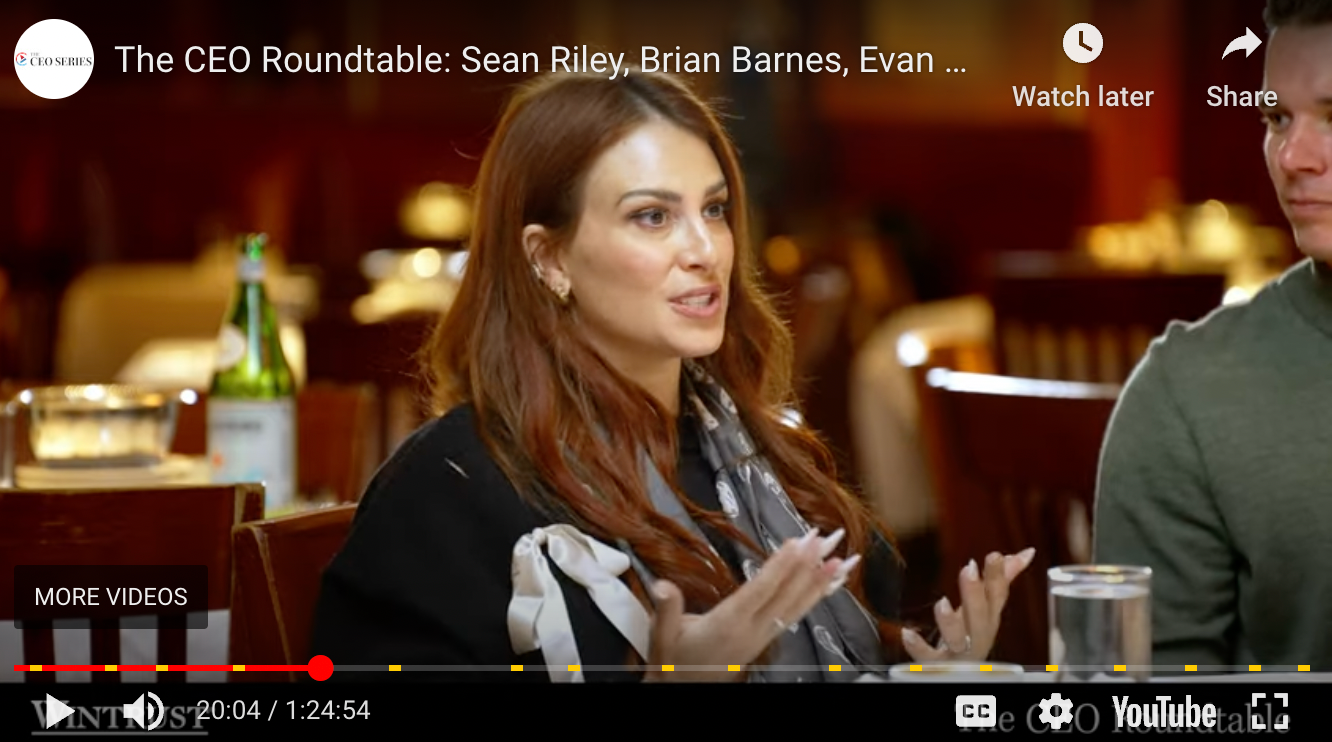In the first episode of The CEO Roundtable, five successful founder-CEOs have a candid conversation about their journeys, the struggles they have faced and what they've learned along the way.
By William Salvi Edited by Dan Bova
I recently fell in love with a popular YouTube series called The Actors Roundtable. Since I talk quite a bit with CEOs, founders and executives, a coworker suggested that we produce a similar version but with business executives. I loved the idea, so we did it! This was our first episode, and I invited five founder-CEOs to discuss their journeys, challenges and lessons learned.
The five CEOs featured were: Sean Riley of Dude Wipes, Brian Barnes of M1, Evan Wray of Mavely, Kristin Olszewski of Nomadica Wine and Erica Bethe Levin of Globowl. The discussion explored the realities of leadership, entrepreneurship and the drive to create lasting impact.
Here are five key takeaways from their conversation.
1. Founder vs. CEO: A balancing act
When you start your own company, it's natural to have a desire to be more involved in the day-to-day. Sean Riley described the transition from founder to CEO as a journey from "Michael Jordan to Phil Jackson" — starting as a hands-on player and evolving into a strategic leader. This evolution challenges leaders to trust their teams and let go of the need for control. "You hired them because they're better than you at those things," said Kristin Olszewski, who shared her earlier struggles with micromanagement. The consensus was clear: To scale effectively, founders must embrace a broader leadership role, even if it means stepping away from day-to-day operations.
2. Embracing risk and responsibility
Entrepreneurship is a risky business. Brian Barnes, who raised a total of $315 million, spoke about the immense pressure of scaling a business, especially when competing with giants like JP Morgan and Charles Schwab. "You have to figure out how to use every dollar ten times more efficiently," he noted. Erica Bethe Levin added a personal perspective, sharing the weight of raising money from friends and family. These stories highlighted the high stakes and emotional toll of managing risk, but also the profound rewards of staying committed to a clear vision.
3. Culture defines success
Company culture emerged as a cornerstone of sustainable growth for all the CEOs. Sean Riley emphasized that culture serves as a filter for decisions and talent. "It's always culture fit over talent fit," he said. The group discussed how a strong culture attracts the right people while weeding out those who don't align with the company's values. Evan Wray, who just sold his company Mavely for $250 million, emphasized this point, even with top performers who pose a threat to the company culture. "Ten times out of ten, remove them, because the company culture is key to scaling into a successful business." Erica reflected on how culture evolves over time, influenced by each team member. "You can't dictate culture — it's shaped by the community you build."
4. Play YOUR game, not theirs
For large companies, it's difficult to stand out and move as quickly as a startup. For smaller, disruptor companies, authenticity in branding is non-negotiable. Sean Riley credited Dude Wipes' humorous and relatable marketing as a major factor in its success. "It's about being real and giving people a reason to trust you," he said. Something the larger toilet paper brands are unable to do. Brian Barnes highlighted his approach with M1 — "People want a product or whatever they're consuming to have some element of craftsmanship." If these CEOs decided to follow in the footsteps of conglomerates, they would lose.
5. The power of resilience and curiosity
Resilience and curiosity were recurring themes throughout the discussion. Kristin Olszewski described resilience as the "number one trait for a founder," while Evan Wray emphasized the importance of curiosity in tackling challenges and finding innovative solutions. Erica Bethe Levin added that maintaining a sense of purpose and integrity is critical in moments of doubt. Together, the panelists agreed that embracing setbacks as opportunities for growth is key to long-term success. In the end, entrepreneurship is a rollercoaster. There are going to be a lot of ups and downs. In order to be a successful entrepreneur, you have to embrace the ride.





